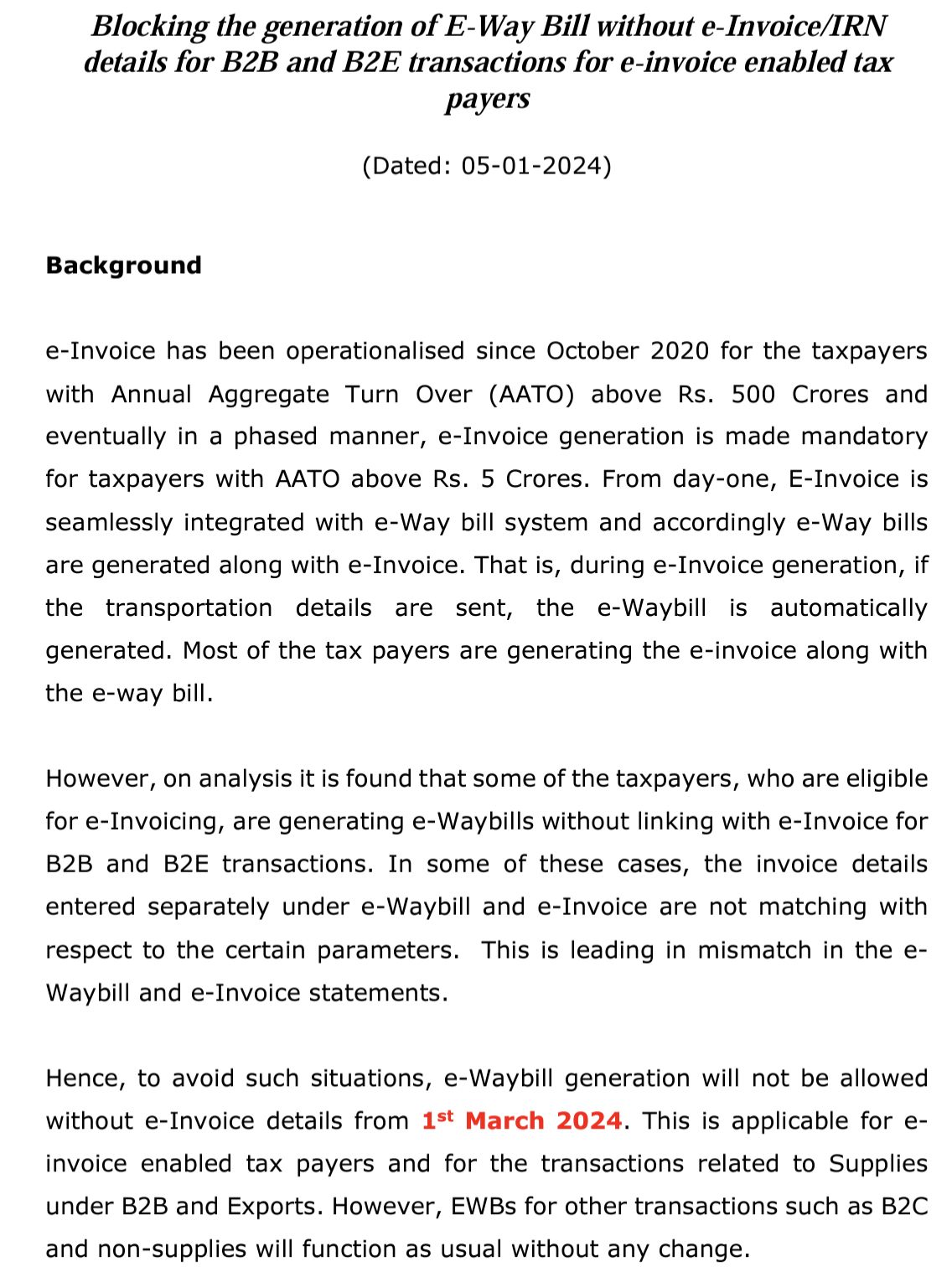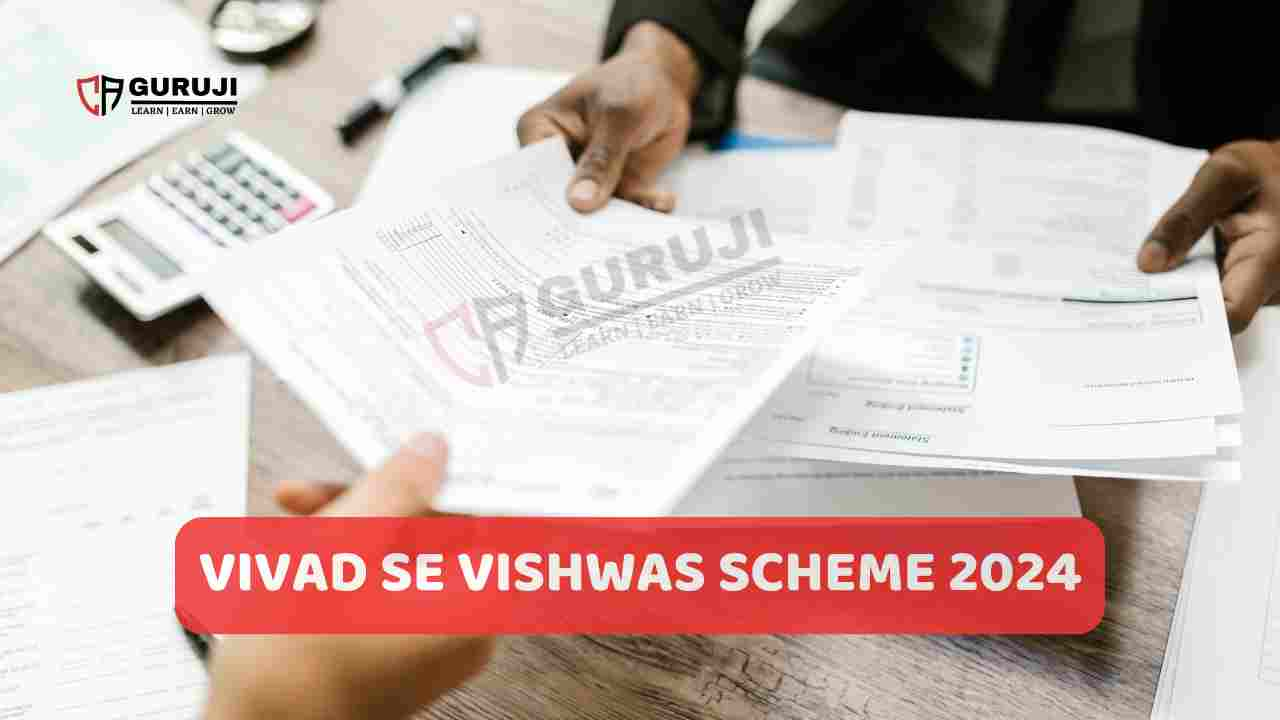Operationalized since October 2020, e-Invoice initially applied to taxpayers with Annual Aggregate Turnover (AATO) above Rs. 500 Crores. Gradually, in a phased approach, it became mandatory for those with AATO exceeding Rs. 5 Crores.
E-Invoice seamlessly integrates with the e-Way bill system, automatically generating e-Way bills during e-Invoice creation if transportation details are provided. However, some eligible taxpayers generate e-Waybills independently, causing discrepancies between e-Waybill and e-Invoice details.
To address this issue, starting from March 1, 2024, e-Waybill generation without linked e-Invoice details will not be permitted for B2B and B2E transactions under e-Invoicing. This rule applies to e-Invoice enabled taxpayers. Notably, e-Waybill generation for B2C and non-supply transactions will remain unaffected.
Check and Balances: The e-Waybill generation process will implement checks for e-Invoicing eligible taxpayers. For B2B and B2E (Exports) transactions, direct e-Waybill generation without an accompanying e-Invoice will not be allowed for eligible Suppliers. This restriction applies to Supply/Exports/SKD/CKD/Lots categories of e-Waybills. However, e-Waybill generation for B2C and non-Supply transactions will continue as usual.
Similar checks will be enforced on Supplier GSTIN for e-Way Bills generated by transporters. Operations such as Part-B updating and transporter ID updating will remain unchanged.
All taxpayers and transporters are urged to modify their systems to accommodate these changes by March 1, 2024.


Visit www.cagurujiclasses.com for practical courses










